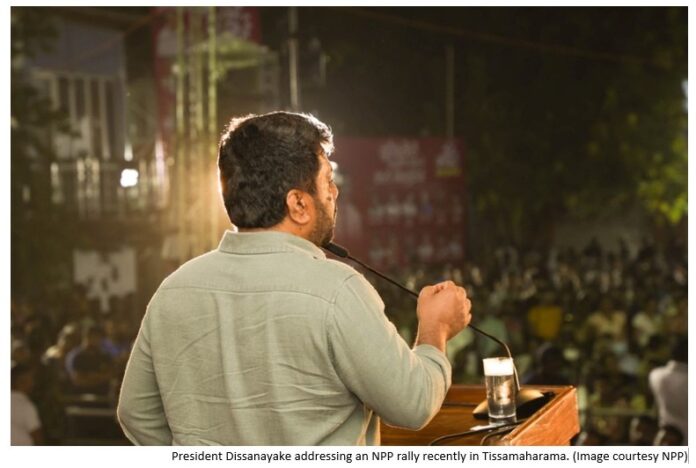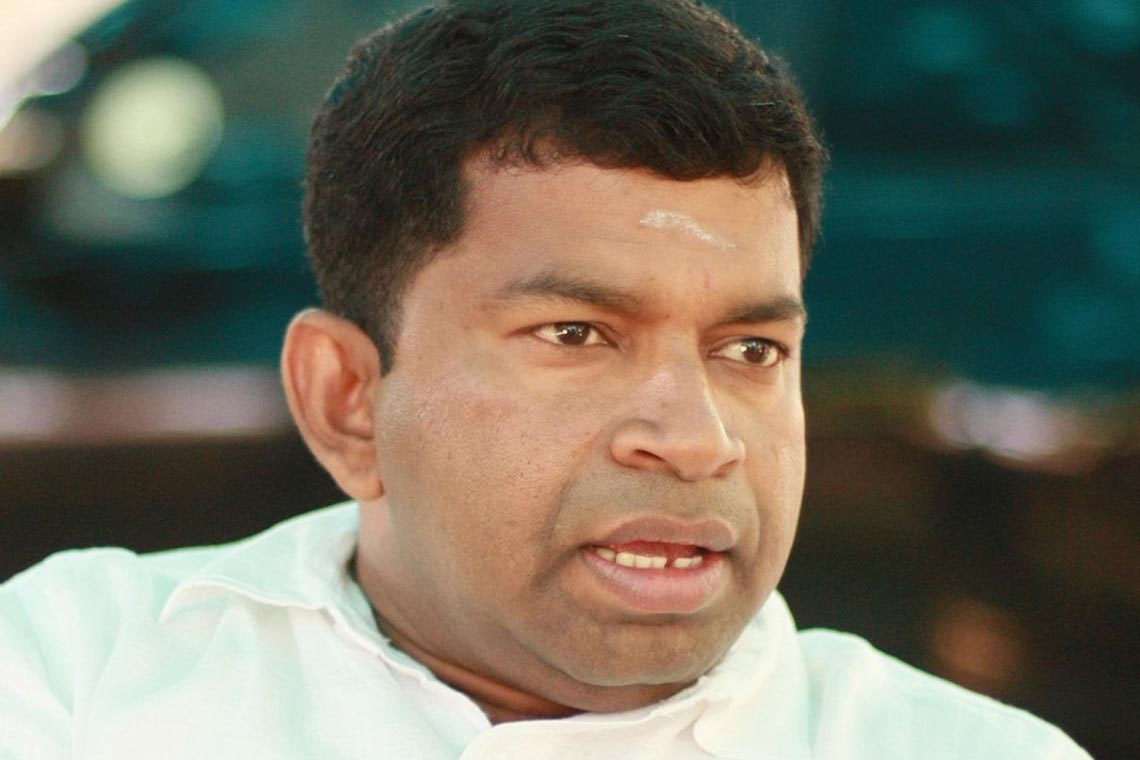by Vishvanath
Time was when the local government (LG) elections were typically taken for granted. Left mostly to grassroots politicians, they were derisively dubbed kaanu-bokku (drain-culvert) elections because of relatively insignificant tasks assigned to the local councils. Hence, the LG polls came to be dubbed mini elections, which the party in power has won over the years without much effort. However, they could assume the same importance as national elections in certain situations, where the ruling party faces numerous issues on the political and economic fronts, with the Opposition becoming visible in its rearview mirror. Today, such an occasion has arisen with the ruling NPP having to face the LG polls less than three months after a general election amidst a string of setbacks the government has suffered in the recent cooperative society elections held on a staggered basis. So, the NPP cannot afford to lose the LG elections scheduled for May 06, for any discernible decline in popular support, measured in terms of the vote percentages in comparison to that that in the last (general) election, will be construed as signifying the beginning of the end of its rule. This is the last thing that any newly elected government needs.
Given some setbacks it suffered in the elections to cooperative societies over the past several months, the NPP has left nothing to chance where its efforts to win the LG polls are concerned. President Anura Kumara Dissanayake, who is also the leader of the JVP and the NPP, has taken upon himself the task of leading the NPP’s LG election campaign. He has been travelling around the country, addressing many rallies in a bid to shore up the NPP’s chances of winning the upcoming polls. He has pulled out all the stops. He has come under heavy flak from the Opposition for issuing a veiled threat that the local councils controlled by parties other than the NPP will face difficulties in obtaining funds from the government.
The biggest problem any political party leader in power faces when he or she leads three election campaigns in a row is that he or she tends to repeat himself/herself when they address election rallies. President Dissanayake is a case in point. What he is saying and doing at NPP propaganda rallies to retain his as well as his party’s popular appeal looks like a repeat of what he said and did during the presidential and general election rallies late last year. He made many promises to muster popular support. Now, he is making still more promises, and asking the public to make the NPP’s victory complete by enabling the government to bag the local councils as well so that he and the NPP government will be able to deliver a better service. This has prompted the Opposition to ask whether the NPP will ask for control of village thrift societies, too, to fulfil its election promises.
The NPP is experiencing some difficulties on the political front not because the Opposition, especially the SJB, has been able to reinvigorate itself significantly, posing a formidable challenge to the government since its defeat last year. True, the Opposition has been able to score some upset wins in the cooperative elections to the extent of causing serious concern to the NPP, which has even resorted to have elections to some cooperative societies postponed, but it is still not in a position to make a political comeback any time soon. It lacks direction and focus.
The NPP’s popularity is apparently on the wane because it has not been able to live up to people’s expectations that it raised extremely high to win the last presidential and parliamentary elections. Sri Lankans are known to expect quick results. Patience cannot be considered one of their virtues. They want governments to begin to deliver from the word go.
They expected fuel prices to be slashed, the corrupt thrown behind bars in double-quick time, the underworld neutralized within weeks, and economic relief granted immediately. The government has given state workers, who account for only about 1.3 million of Sri Lanka’s 8.5 million workforce, pay hikes which, independent trade unions have said, are not enough, and caused some Opposition politicians to be arrested and prosecuted over allegations of corruption, murder, etc. Most of all, on April 09, 2025, the Commission to Investigate Allegations of Bribery and Corruption (CIABOC) launched the National Anti-Corruption Action Plan 2025-2029, as a strategic initiative to reaffirm the country’s commitment to strengthening governance, enhancing transparency, and reinforcing the rule of law. The launch was given maximum possible publicity; it was attended by President Dissanayake, Chief Justice, Murudu Fernando PC; Chairman of CIABOC, Justice Neil Iddawela, Commissioners and Director General of CIABOC, Akio Isomata, Ambassador of Japan to Sri Lanka, several other foreign envoys, heads of international organizations, senior state officials, politicians, and others. On April 08, the NPP government secured the passage of the Proceeds of Crime Bill, which will now become law to help combat illicit enrichment and the flow of black money. These are no doubt important laws, but whether they will be strictly enforced remains to be seen. Public trust in anti-corruption laws has eroded over the years, and new laws alone will not help restore it. This is the biggest challenge before the NPP government, which made a much-touted election promise last year to bring the country’s stolen wealth back.
The government’s desperation to win the upcoming LG polls impressively is understandable. It may be recalled that what led to the collapse of the mighty Mahinda Rajapaksa government in January 2015 was a decrease in its votes and the number of its seats in the Uva Provincial Council election in 2014. The UPFA, which under President Rajapaksa’s leadership had polled 418,906 votes (72.39%) and secured 25 seats in the 2009 PC polls in Uva, was left with only 349,906 votes (51.25%) and 19 seats in the September 2014 PC election. The UNP, which had obtained only 7 seats in the previous council, secured 13 seats; its votes increased from 129,144 (22.32%) in 2009 to 274,773 (40.24%) in 2014. The number of the JVP’s seats increased from one to two. That emboldened the UNP-led UNF to crank up its anti-government campaign and defeat President Rajapaksa in the 2015 presidential race by engineering mass crossovers from the UPFA and fielding a common Opposition candidate, Mathripala Sirisena, to form a government.
The JVP-led NPP’s stakes are extremely high in the upcoming LG polls unlike its rivals’. Its impressive win in last year’s general election is still fresh, but given the circumstances, whether the NPP will succeed in achieving its goal of matching or bettering its past performance remains to be seen. The May 06 LG polls will be the moment of truth for the NPP rule.



 Logging you in...
Logging you in... Loading IntenseDebate Comments...
Loading IntenseDebate Comments...

